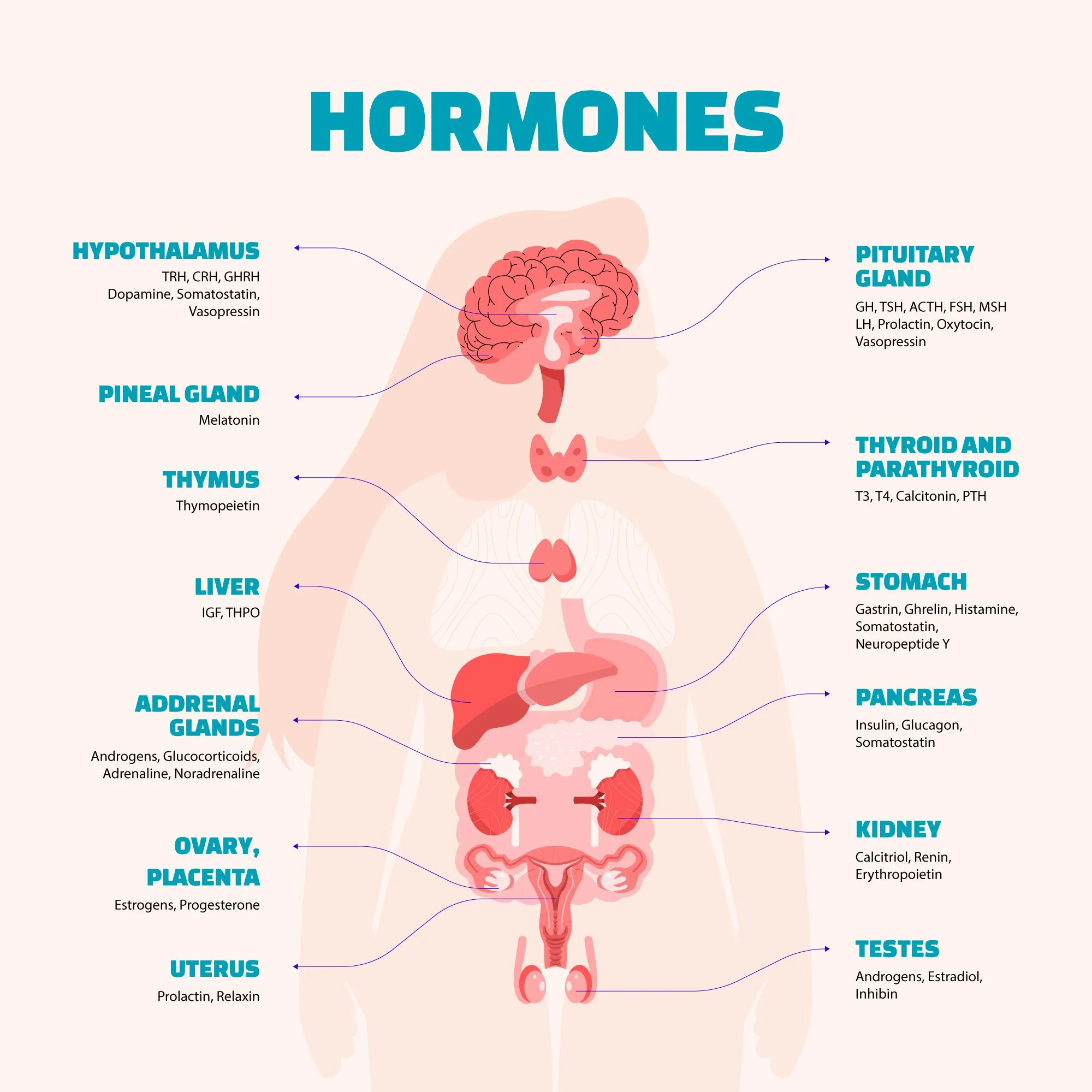
Struggling With Hormonal Imbalance? You’re Not Alone.
From chronic fatigue to mood swings and weight changes, hormone dysfunction can silently impact every part of your life. Let’s get to the root and bring your body back into balance.
What Is Hormone Dysfunction?
Hormone dysfunction, also known as hormonal imbalance, occurs when you have too much or too little of one or more hormones in your body. Hormones are chemical messengers produced by various endocrine glands that regulate essential bodily functions including metabolism, growth, reproduction, mood, and sleep patterns.
Most people will experience natural hormonal fluctuations during their lifetime, particularly during puberty, pregnancy, menopause, and aging. However, some hormonal changes are related to underlying medical conditions that require professional attention and treatment.
Common Signs of Hormonal Imbalance
Hormone dysfunction can manifest in numerous ways, affecting multiple body systems. Symptoms can vary significantly depending on which hormones are imbalanced and the severity of the dysfunction.
✔ Unexplained weight gain or loss
✔ Fatigue and weakness
✔ Sleep disturbances
✔ Hair thinning or excessive hair loss
✔ Dry skin or excessive sweating
✔ Changes in body temperature sensitivity
✔ Muscle weakness
✔ oint pain and stiffness
✔ Irregular menstrual cycles
✔ Heavy or light periods
✔ Reduced libido
✔ Fertility issues
✔ Vaginal dryness
✔ Hot flashes
✔ Erectile dysfunction
✔ Mood swings and irritability
✔ Anxiety and depression
✔ Mental fog and confusion
✔ Difficulty concentrating
✔ Memory problems
✔ Increased stress sensitivity
✔ Loss of motivation
✔ Emotional instability
✔ Changes in appetite
✔ Blood sugar fluctuations
✔ Increased thirst and urination
✔ Digestive issues
✔ High cholesterol
✔ High blood pressure
✔ Insulin resistance
✔ Slow wound healing
Hormone dysfunction symptoms can significantly disrupt your daily life and overall well-being. At Better Health, we utilize advanced saliva and urine testing to comprehensively evaluate hormonal imbalances. These specialized testing methods assess both hormone production and metabolic pathways, offering detailed insights into how your body produces, processes and eliminates hormones. This comprehensive approach enables us to identify specific hormonal dysfunctions and design personalized treatment plans. Unlike traditional blood testing, saliva and urine tests measure bioavailable hormone levels and metabolites more accurately, while offering the convenience of at-home collection for your comfort and privacy.



